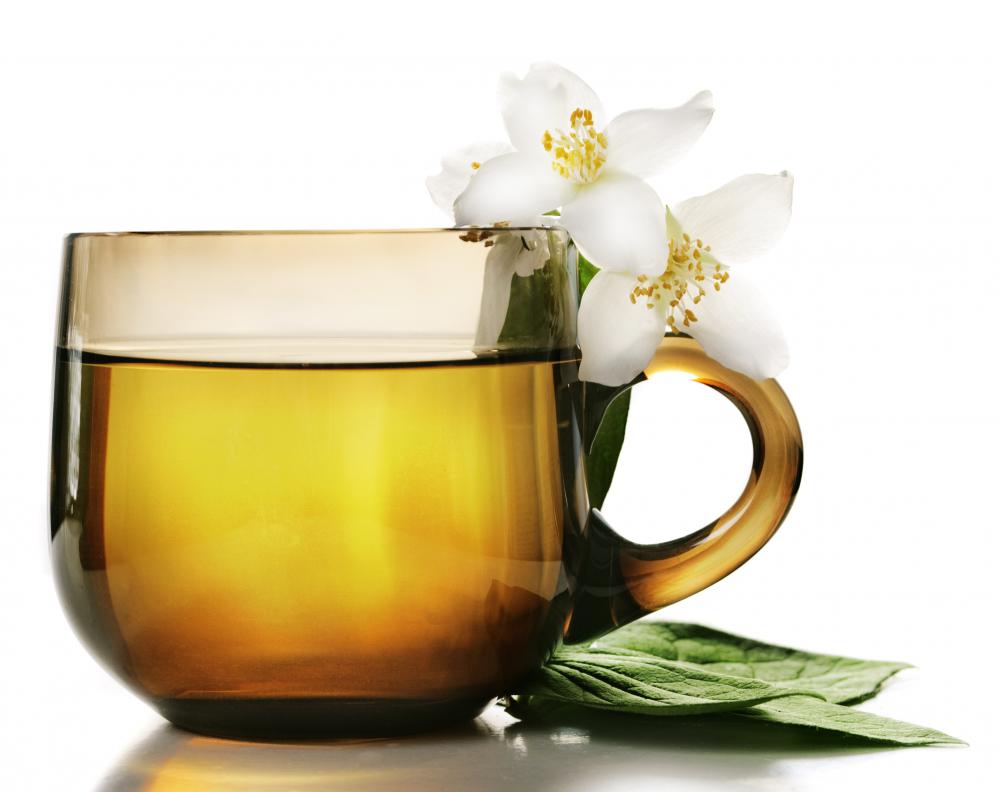At WiseGEEK, we're committed to delivering accurate, trustworthy information. Our expert-authored content is rigorously fact-checked and sourced from credible authorities. Discover how we uphold the highest standards in providing you with reliable knowledge.
What Is Organic Tea?
Many food products can legally be called organic because they were grown and processed without the use of chemical pesticides or fertilizers. In the case of organic tea, an independent certification board verifies the tea plants were strictly grown in natural soil fertilized with only organic additives. The use of chemical pesticides and fertilizers is already minimal in the tea industry, so it is not generally difficult to produce a legally organic tea.
Organic tea often requires more labor-intensive practices than other types of tea, so it is often more expensive in the retail market. According to the results of many sanctioned tea tastings, however, organic tea is often selected as the top contender in terms of overall taste, flavor and potency. Many seasoned tea enthusiasts can immediately identify the tea during a tea sampling session.

The recent increase in organic tea's popularity is part of an overall movement towards organic farming methods in general. Unregulated tea growers have been known to use raw sewage lines to irrigate their crops, as well as use banned pesticides such as DDT to control insect damage. While most tea companies do regulate themselves internally, only those who use farming methods such as crop rotation, interplanting and composting are likely to obtain organic certification. By United States Department of Agriculture (USDA) standards, legally organic soils must be free of synthetic chemicals and fertilizers for at least three years.

Teas that are certified organic can be found in virtually every country that grows tea as a crop. The designation can be applied to white, red, green, Oolong, black or any other tea variety. Many organic herbal tea blends contain other ingredients such as spices and flowers which have also been grown organically. The classification of a tea as "organic" refers only to the farming and processing methods to produce it, not the tea's specific type or level of fermentation.

Many consumers select loose leaf tea blends in specialty tea shops, but organic tea can be sold in standard tea bags as well. Tea drinkers can enjoy the natural antioxidants and polyphenols found in most tea blends, and also take comfort in knowing their tea does not contain any dangerous chemicals or pesticides.
AS FEATURED ON:
AS FEATURED ON:















Discussion Comments
People that say "organic isn't really all that better", are wrong. The 'organic' produce at Ralphs, Albertsons, Vons, Target, Walmart, Fred Meyer, Safeway, etc. is hardly organic. You have to go to small-scale, local farmers who you know who practice organic to notice the difference.
But the most important issue about organic is that I should be allowed to know exactly what is in and on my food, where it was produced, whether is was genetically modified, whether it grew in arsenic or cadmium-laden soil regardless of the growers use of pesticides, and everything about it. It should be federal law that all that information be labeled.
When people say 'organic doesn't matter', it is a slippery slope to the argument that food regulation should not be further looked at and that consumers (see little people) don't have rights in mandating things about the products available to them.
Organic produce like black tea might be more healthy or it might not.
This has not been proved. In fact, in some studies organic produce has been found to be exactly the same as non-organic produce in terms of nutrition. I'd imagine with tea, which is usually grown without a lot of chemical anyway, the difference would be even more slight.
At any rate, growing organically is definitely more sustainable and better for the environment. So you should buy it for that reason alone.
If you are picking an organic tea, you should look up the certification online to ensure that the organization which awards it is real, and that it has strict standards. In some countries, there is no standard for organic labeling, and some companies manage to find ways of making it look as though a product is labeled organic when it really isn't.
If possible, you should try to buy tea which is also certified fair trade, as then you know it was produced in a truly sustainable way.
Post your comments